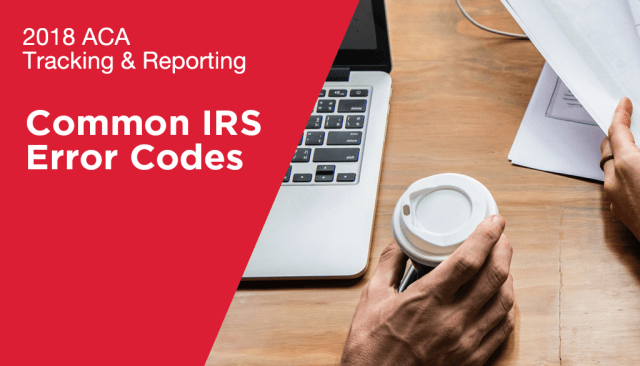Final Paycheck Compliance
Brad Smith • October 3, 2019
Financial leaders should educate their HR counterparts of the importance of abiding by final payment rules.

Though federal rules from the Department of Labor (DOL) give employers some flexibility in determining when to issue final compensation to workers leaving an organization, final paycheck compliance laws differ from state to state, and those rules also change periodically. This can make it challenging for HR professionals in your organization to keep up with the regulations in order to avoid fines and penalties for violations of final paycheck rules.
Understand State Differences
The differences in state laws are complex. For example, California and Colorado generally require the final pay check be provided to employees immediately if terminated by the employer, while other states require that it is sent on the following payday. Rules can be different for employees who leave voluntarily rather than being terminated by the employer. And some states, like Florida, have no special rules regarding final paychecks.
These differences are just the start of the complexity. Some states have different rules depending on when the employee gave their notice. For example, in Hawaii, if an employee gave notice a pay period in advance, the final check is to be given to the employee on the last day of employment. Otherwise, the final check can be sent out on the next payday. Payment rules for unpaid vacation days differ from state to state.
Violations Can Result in Penalties and Fees
As an employer, violating a state's final paycheck rules can subject you to fines and legal expenses. In California, the penalty can be as much as 30 days of the employee's wages. In Illinois, the offending employer is subject to paying the back wages plus damages, an administrative fee, and a penalty paid to the employee based on the days the final payment was made. Many other states also base penalties on an employee's wages and the number of days that the final payment should've been made.
Beyond those costs, another issue with violating final payment rules is the negative sentiments of remaining employees. With social media, this sentiment rarely stays in-house for long. Once the information goes out to the public, there is reputational risk that your organization's potential customers and potential employees will hear about it. These headaches and expenses can be avoided.
How Who'sWhere Can Help
You can help to alleviate many concerns about final compensation by making sure your team is utilizing an integrated payroll and HR function system, contact us here
for more information about this. This can help relieve some of these challenges by incorporating the laws and regulations regarding final paychecks and other payroll needs with terminations and termination procedures. Through this integrated system, you can offer more convenient and cost effective payment options to employees. Wisely Pay, for example, offers a paper check option and is not without cost, but is less expensive than the fines you may be subject to for noncompliance.
Of course, the benefits of this integrated system go well beyond compliance with final paycheck regulations. It further enables your business to have insight into the various elements of HR and payroll so you can use internal data to analyze expenses and budget as efficiently as possible. An integrated experience can help eliminate hidden costs of ownership associated with data upkeep; as well as speed up transactional processing in order to avoid penalties.
Financial leaders should educate their HR counterparts of the importance of abiding by final payment rules. A payroll system that is linked to your software can help ensure that final paychecks are issued in compliance with the law. Some organizations with multi-state operations may find it easier to use a service provider that has the HCM capabilities and know-how to address different rules and help keep the business in compliance. Find out more by contacting us here.

Once employers have familiarized themselves with the ACA obligations, they should also know of the penalties associated with non-compliance. Identifying and paying for full-time employees is fairly easy because of the straightforward details of their job but for variable hour employees’, it is not as simple. Some organizations make use of the ‘limiting’ strategy to manage such schedules but this strategy as its own set of problems. Problems such as workforce scheduling and variable labor requirements are factors that make this strategy impracticable. We’ve combined some of the best ways to ensure ACA compliance in this article and examined how ‘guidance’ can help you limit penalties.

The new year brings new policies and regulations, so it's important to do a comprehensive review and update of your legal and HR compliance to make sure that you're on top of any new laws and regulations. Begin 2020 on the right foot, with the knowledge you'll need to answer any questions from corporate leadership, supervisors, and employees. Here's what you need to know.

As the fiscal year closes the employers have many queries regarding the status of the Affordable Care Act (ACA) Reporting. It is questioned every time the tax filing season looms. The answer to all these queries is that Yes! ACA is still the law and employers who tend to ignore their obligations towards ACA reporting can face some heavy penalties.

It is important to choose a reliable and secure data aggregation solution which provides you with the best data. If you manage to get financial data which is cleaned and enriched then you can make accurate assessments of the financial situation of your customers. Following are some of the things which you should look for while choosing a solution to data aggregation.

Due to the complexity of the process, utilizing a reputable software vendor to file your 1094/1095 data electronically with the IRS is considered to be a best practice. One reason for this is that if it turns out that there’s a problem with some of your ACA data, the IRS doesn’t necessarily make it easy to figure out what went wrong.

The past few years have brought forth a great deal of uncertainty surrounding the Affordable Care Act. The topic of ‘repeal and replace’ was front and center during the 2016 presidential and congressional elections, and 2017 saw several attempts at repeal, none of which were ultimately successfully at scrapping the law in its entirety.




